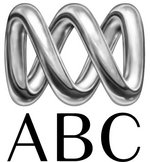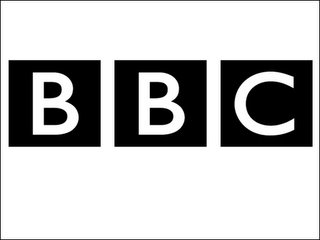

.
Stuff reports a call by a bunch of high profile New Zealanders for a compulsory pay TV channel – sold as a public non-commercial channel. It would be compulsory pay TV because you would be forced to pay for it regardless of whether or not you watch it.
.
As such channels exist overseas, they think you should be made to pay for one here, as you are made to pay for National Radio and Concert FM
.
Of course, there is little stopping this parade of rather wealthy New Zealanders setting it up themselves, buying frequencies and running such a channel with donations. TVNZ, after all, holds frequencies for a nationwide UHF TV channel, and the Maori reserved UHF frequencies still exist (Maori Television uses a frequency owned by Sky).
.
Unfortunately I doubt the people concerned are willing to put their hands in their pockets for a non-commercial TV channel. You see, when you want something expensive, most people would rather spend their money on other things, like holidays or Sky TV.
.
Public funded TV is expensive. ABC TV in Australia costs A$526 million a year , and the BBC sucks £123 (around $300) a year from British households to fund 2 analogue and 4 digital tv channels, and half a dozen radio stations for the whole country. Of course there are about 15x the households in Britain. Around a third of New Zealand households pay around 50% more than that for dozens of channels that they presumably want.
.
The big problem is that those advocating public TV complain about a lack of decent local programmes and too much advertising. Well ask those who produce the programmes. If people who worked in the industry charged less for their services there could be more programmes. If people wanted them they would pay for them – ahhh but they cost far more than imported programmes you say. It is a bit like complaining that too many fly economy class, it would be better to have decent seats with decent food, like those people who fly business class – someone else ought to pay!
.
Ah but it is about our culture. This is the argument I heard from the local content lobbyists for years - why make the conversation about money! Whose culture? So public TV reflects culture does it? Is that why 80% of Australian TV viewing is NOT done in front of the half billion dollar compulsory pay TV channel? Is that why public TV is almost invariably rather leftwing in outlook? (though TV3 news can give them a run for their money).
.
As such channels exist overseas, they think you should be made to pay for one here, as you are made to pay for National Radio and Concert FM
.
Of course, there is little stopping this parade of rather wealthy New Zealanders setting it up themselves, buying frequencies and running such a channel with donations. TVNZ, after all, holds frequencies for a nationwide UHF TV channel, and the Maori reserved UHF frequencies still exist (Maori Television uses a frequency owned by Sky).
.
Unfortunately I doubt the people concerned are willing to put their hands in their pockets for a non-commercial TV channel. You see, when you want something expensive, most people would rather spend their money on other things, like holidays or Sky TV.
.
Public funded TV is expensive. ABC TV in Australia costs A$526 million a year , and the BBC sucks £123 (around $300) a year from British households to fund 2 analogue and 4 digital tv channels, and half a dozen radio stations for the whole country. Of course there are about 15x the households in Britain. Around a third of New Zealand households pay around 50% more than that for dozens of channels that they presumably want.
.
The big problem is that those advocating public TV complain about a lack of decent local programmes and too much advertising. Well ask those who produce the programmes. If people who worked in the industry charged less for their services there could be more programmes. If people wanted them they would pay for them – ahhh but they cost far more than imported programmes you say. It is a bit like complaining that too many fly economy class, it would be better to have decent seats with decent food, like those people who fly business class – someone else ought to pay!
.
Ah but it is about our culture. This is the argument I heard from the local content lobbyists for years - why make the conversation about money! Whose culture? So public TV reflects culture does it? Is that why 80% of Australian TV viewing is NOT done in front of the half billion dollar compulsory pay TV channel? Is that why public TV is almost invariably rather leftwing in outlook? (though TV3 news can give them a run for their money).
.
Well if it is about culture then stop trying to put your hand into other people’s pockets and work for free or a lot less. If the culture vultures care so much about culture they wont charge what they do for their services because it will be done out of love – after all socialists often say how much they wish so much was not about money.
.
They claim most people are ready to throw their tvs out the of their windows. Who is stopping them? Do something else, listen to the radio, play your own music, read a book, talk to people, go outside!
.
Television is not a right – it is a service and it can be funded in three ways:
.
Advertising: Where you, the viewer, get a free service in exchange for businesses (and the state!) promoting products and services to you. However to keep you watching, the channel must give you shows you want to watch, so that the audience is at its greatest.
.
The people advocating public TV don’t like commercial television though. There is an undercurrent of thinking that what the great unwashed like the most is poor quality – the proletariat only like rugby, imported comedies and reality TV shows. This is not good enough for our esteemed New Zealanders who despise this as drivel. Commercial TV targets particular audiences that may be interested in particular products, so beyond that we have…
.
Subscription TV: To convince people to pay for extra channels has been quite a feat, mostly by putting sports on it. However it does mean that people get what they pay for, and the choice is growing year by year. Again the public TV lobby see this as crass “why should you have to pay for it”, as if Dame Malvina would do all her concerts for free. Well pay TV is like buying magazines, people increasingly buy the channels they want and at any time, can give it up.
.
Voluntarily funded TV: US PBS is largely this, as are the handful of non-commercial (but not commercial free) channels around the country. People donate money and the station operates. You make a decision whether public TV is something you want to support, or you would rather save up for something else. Triangle TV in Auckland is a hybrid of this and commercial broadcasting, and there are similar channels in Dunedin and Nelson.
.
None of this washes with the public TV lobby, but fortunately the government wont give them what they want. This is because Treasury looked into this some years ago and the cost is astronomical – those public TV people don’t come cheap you know!
,
So I suggest the coalition of the (willing?) raise cash, buy some frequencies and transmitters and have a go themselves. They will soon see that most New Zealanders couldn’t give a damn or are not willing to put their money where their mouths are.
.
They claim most people are ready to throw their tvs out the of their windows. Who is stopping them? Do something else, listen to the radio, play your own music, read a book, talk to people, go outside!
.
Television is not a right – it is a service and it can be funded in three ways:
.
Advertising: Where you, the viewer, get a free service in exchange for businesses (and the state!) promoting products and services to you. However to keep you watching, the channel must give you shows you want to watch, so that the audience is at its greatest.
.
The people advocating public TV don’t like commercial television though. There is an undercurrent of thinking that what the great unwashed like the most is poor quality – the proletariat only like rugby, imported comedies and reality TV shows. This is not good enough for our esteemed New Zealanders who despise this as drivel. Commercial TV targets particular audiences that may be interested in particular products, so beyond that we have…
.
Subscription TV: To convince people to pay for extra channels has been quite a feat, mostly by putting sports on it. However it does mean that people get what they pay for, and the choice is growing year by year. Again the public TV lobby see this as crass “why should you have to pay for it”, as if Dame Malvina would do all her concerts for free. Well pay TV is like buying magazines, people increasingly buy the channels they want and at any time, can give it up.
.
Voluntarily funded TV: US PBS is largely this, as are the handful of non-commercial (but not commercial free) channels around the country. People donate money and the station operates. You make a decision whether public TV is something you want to support, or you would rather save up for something else. Triangle TV in Auckland is a hybrid of this and commercial broadcasting, and there are similar channels in Dunedin and Nelson.
.
None of this washes with the public TV lobby, but fortunately the government wont give them what they want. This is because Treasury looked into this some years ago and the cost is astronomical – those public TV people don’t come cheap you know!
,
So I suggest the coalition of the (willing?) raise cash, buy some frequencies and transmitters and have a go themselves. They will soon see that most New Zealanders couldn’t give a damn or are not willing to put their money where their mouths are.
.
I've found in the UK that the most challenging programmes are not on the BBC, but on Channel 4 - which is prepared to show documentaries such as "religion the root of all evil". Commercial TV can be different - the BBC wont even call terrorists terrorists as it is too scared of offending anyone!
No comments:
Post a Comment